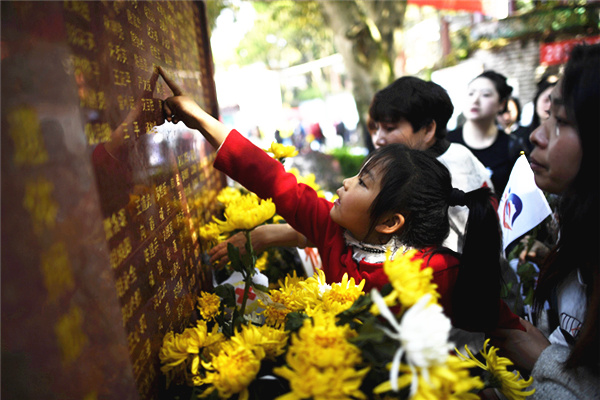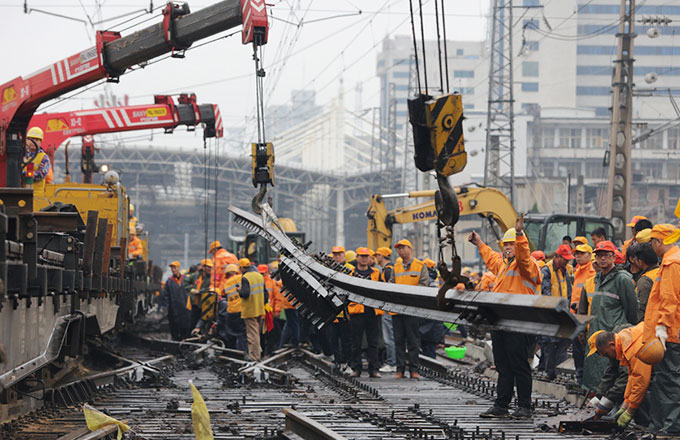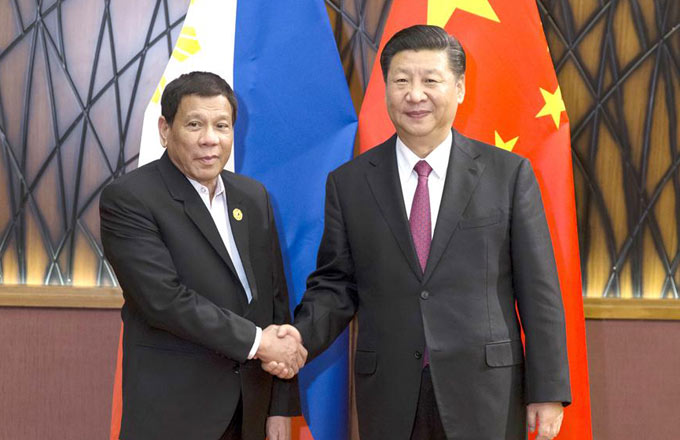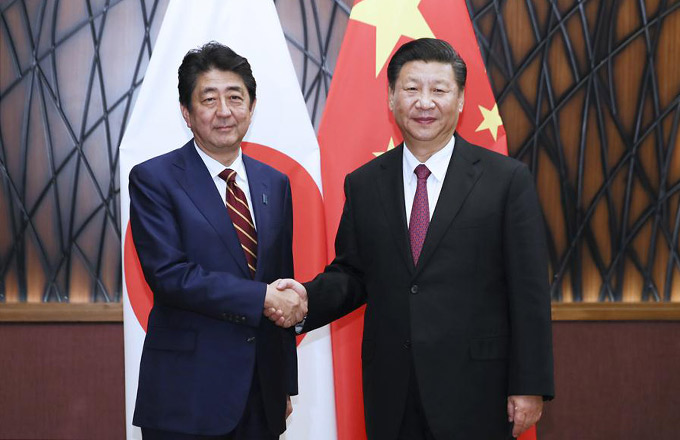Organ donation program moves into overdrive
 |
|
Children read the names of donors at the opening of a memorial park in Chongqing, Southwest China, on April 1. Provided to China Daily |
Nearly 150 postgraduate students will begin training this month as the country continues to refine the national system, as Yuan Quan and Gao Bei report for Xinhua Features.
'I do." Those two words brought Liu Yuan, a father of two boys, to the verge of tears. But it wasn't a wedding vow; it was an affirmative answer from the relative of an organ donor.
In China, every post-death organ donation must be approved by relatives. As the coordinator of organ donations at the Beijing Youan Hospital, the 38-year-old spends his days approaching the families of potential donors, procuring organs and arranging funeral services.
This month, he and 21 colleagues from Shanghai, Beijing, the Guangxi Zhuang autonomous region, and the provinces of Yunnan, Hubei and Jiangxi, will start training postgraduate students in organ donation and transplantation techniques.
They believe the training will be a key step in China's progression toward a more professional approach to organ donations in line with international practices.
Skills shortage
Liu, a liver transplant surgeon, had never handled organ donations before taking up his post in 2013.
Initially, he was reluctant to accept the position, and mistakenly thought the job of coordinator involved little more than "persuading people to donate".
His predecessor quit because there had been no donations for more than six months.
Liu read books and took courses in the hope of better communicating with the families of protential donors. He completed his first organ donation over a drink.
A 13-year-old girl with a brain tumor had been declared brain dead and was being kept alive by machines, but her family was reluctant to donate her organs.
Liu invited her father for a drink, and the two men formed a bond. He recalled how they cried all night, not only for the suffering of the family, but also for a father's regrets.
His companionship and understanding worked. The next day, the father agreed to donate his daughter's liver, kidneys and corneas, helping at least three people.
In the past four years, Liu has completed more than 30 organ donations. But the failures "could be more than five times that number".
He understands that the main obstacle to donation is that many conservative elderly people still firmly believe in the tradition of burying the dead intact. Even his own parents disagree with organ donation, he said.
His work has resulted in him being verbally abused and he has even been accused of being involved in organ trafficking.
China banned the use of organs from executed prisoners in 2015, making voluntary donation the only legitimate source of organs.
As the system has become more fair and transparent, the number of donors has grown and public awareness is rising.




























